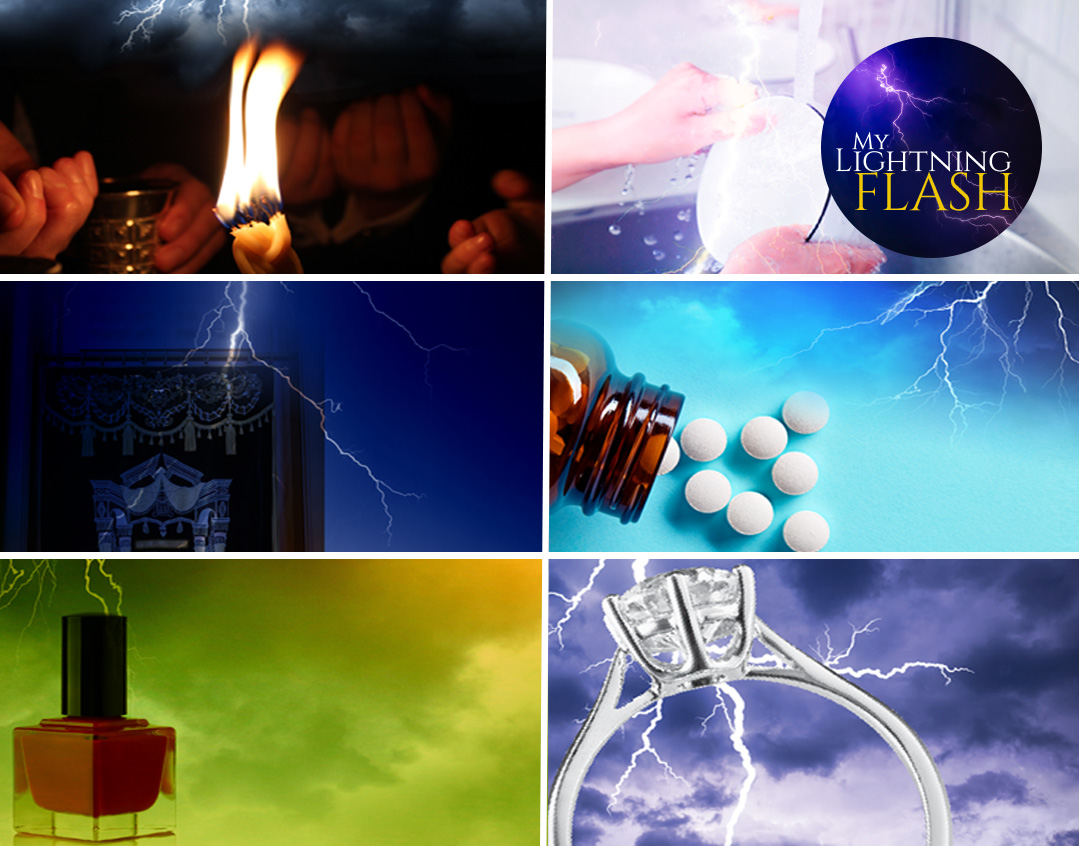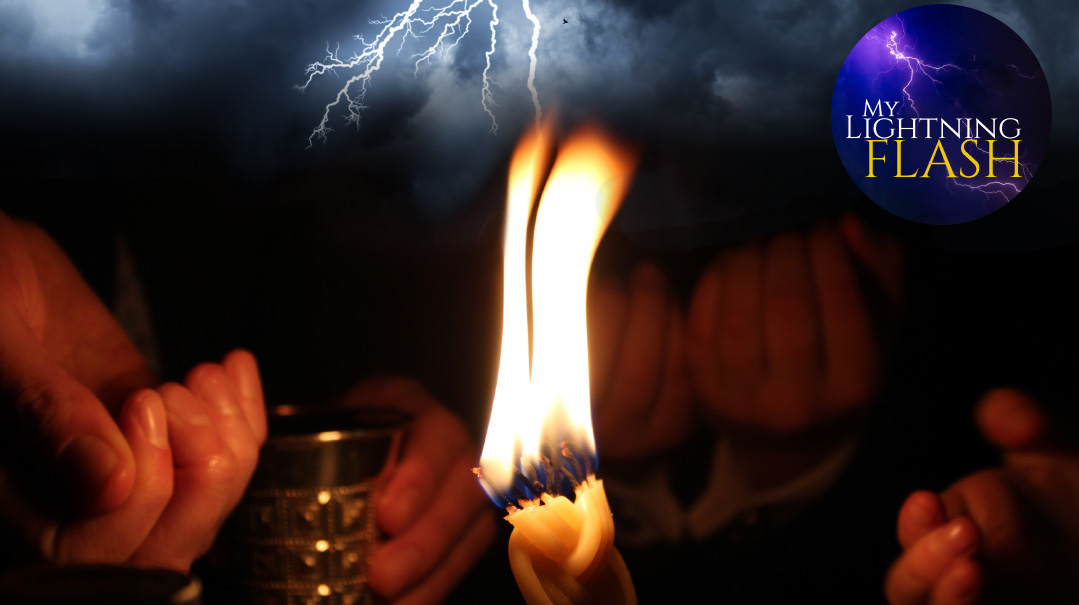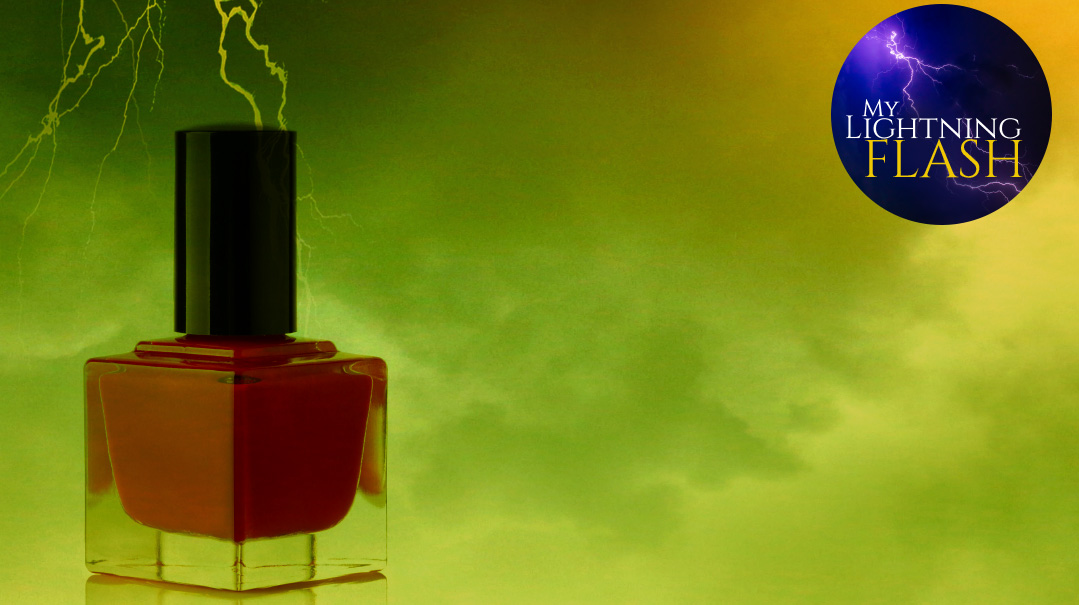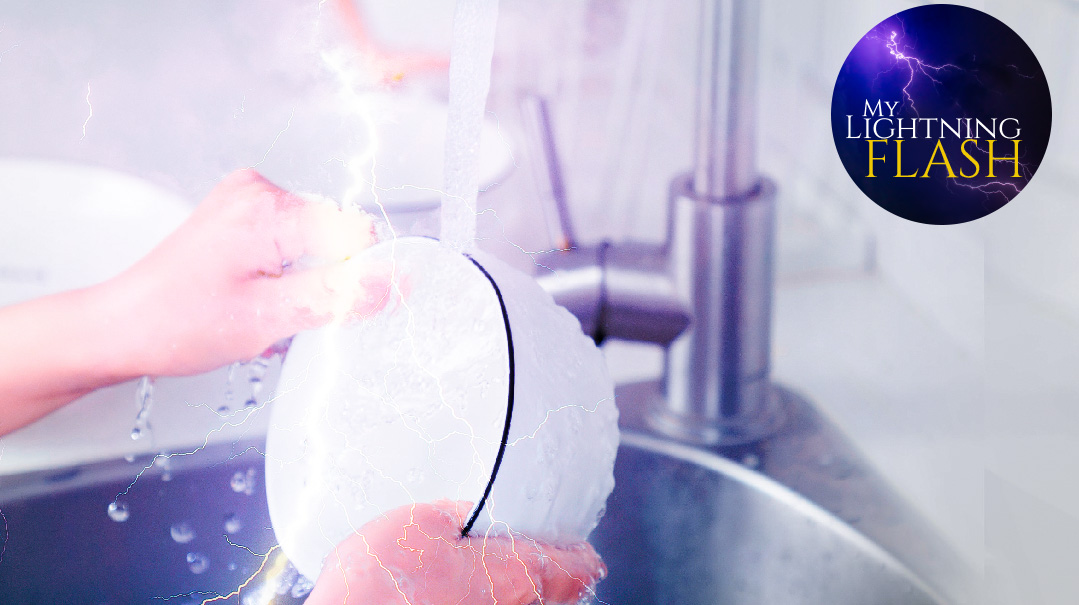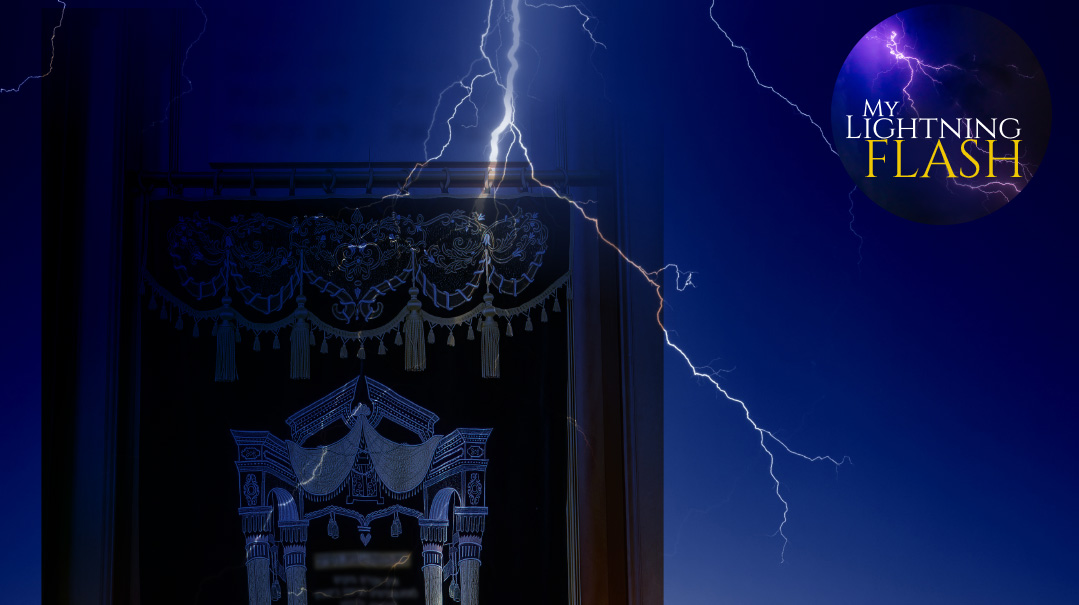I’m Fine
| May 11, 2021As we stood at Har Sinai, the experience flooded senses; we saw the thunder, heard the lightning. The lightning fades, but the sudden burst of clarity takes you forward. 6 women share a moment that illuminated their path
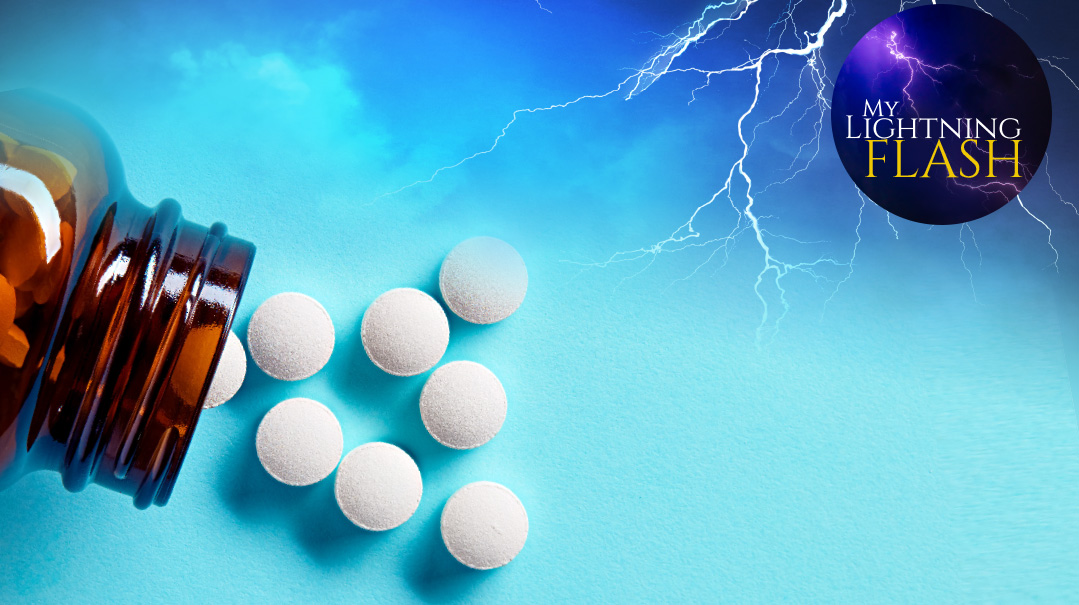
As told to Michal Abrahams
Ma is preparing my snacks, placing the fruit in the container just as I like it — four peach quarters, a peeled pear. The bags under her eyes look ready to capsize, rowboats in a storming ocean.
I watch her carefully as she closes the lid with a click, avoiding my gaze. A crowd of butterflies take wing in my stomach. Dad hasn’t done it again, has he?
I know it will hurt her, it will. But I can’t take the not knowing. “Is Dad okay?” I ask. She swivels round suspiciously, looks hunted.
“No.”
My back stiffens. “What did he do?” Ma turns around to prepare Chani’s snacks and starts cutting again. As the knife hits the board, she answers in a monotone, “Overdose.”
Not again.
My heart splinters, but it can’t break. I have school, have a life. We all have to get on with it. My mind moves to Dad, and I shake my head vigorously. As if that helps me forget.
The butterflies are hovering, but my brain furiously pushes them down. I’m fine, it’s fine, we’re always fine. It’s just another depressive “episode,” as the doctors say. He’ll be okay. I give Ma a hug and grab the fruit container. My insides are screaming it’s too much, too much. But I’m fine. I’m okay. All I have to do is go to school. Not a big deal, really. Just my life.
In school I act like everything is normal. Something niggles at the back of my brain, but I push it away and hiss at it to leave me alone until a more opportune time. It makes me squirm anyway. When lunchtime comes, I can’t touch the fruit.
Batting away the thoughts, I walk toward my locker. Bell is ringing. Time for class.
On my way to math class, I speed past the mechaneches’s door. I dream of knocking on it, telling someone about this act, this farce, this life. But I’m fine, it’s only Dad who has the problems. So I sit in my seat and force every fiber of my being to work out the x’s and y’s in Algebra I.
And I forget all about silly things, like fathers and mothers and containers of fruit and too many pills.
4:30 p.m. — finally. The wind howls in the dusking of day, the leaves stick in a soggy pile to the bottom of my shoes. No more lighthearted crunch beneath my feet, now I’m dragging. Down, scrape, up, down. Down, scrape, up, down. Dad in hospital, comes home again, depression returns, back he goes. Down, scrape, up, down.
But I’m fine. In defiance I kick the leaves, and the sweeping of my feet captures all my attention. It feels good to let it out. Down, kick, up, down. It probably looks juvenile, but I’m too buried in my world to care.
Almost there now. I’ve left my classmates bantering on the street corner — I can’t do that. My swinging heart keychain jeers at me as I place it in the lock, and as the heavy white door bangs shut behind me, a shiver, like a cold hand, moves up my spine.
It’s dark, and the answering machine is glowing red, as if Ma hasn’t been in for a while. I wonder where Chani is, and go about turning all the lights on, trying to make the place feel fuller and warmer. Emptiness chews at my insides. It’s fine, a voice reminds me.
I realize I’m leaving trails of stalks and brown leaves, and take off my shoes, throwing one in one direction, the other in another. Tramping up the stairs, I’m drained.
In my bedroom, one terse hand movement pushes my to-do-list off the noticeboard. There, no work to do now. I climb into bed, head down, eyes closed. I’m not sticking around this place any longer than I need to. I’ll go and visit some other land, where mothers are home to greet their daughters and everything is as fine as we pretend it to be.
We go through days like this. Days and months and years. Sometimes Dad’s okay — he smiles, he laughs, plays games with Chani and me. Other times he doesn’t emerge from his bedroom for weeks, and when he does, he looks pale and ghostlike. His clothes sometimes hang, as if unsure where to put themselves around his emaciated body.
Then the paramedics come and take him to the hospital, give him new pills, and we breathe and hope and pray. After that, he comes home, and Depression fights back in a million and one ways.
Social workers flit in and out, ask how Dad is. Has he eaten, is he sleeping, taking his meds? Chani and I nod at them, keep out of Ma’s way. No one asks about us; we’re fine.
And slowly my heart ices over, until numbness sets in.
Seminary interview. Everyone tells me I have what it takes. I’m well-behaved, I’m smart, I’m talented. And besides, Rebbetzin Stein has known my mother for years. Ma even talks to her sometimes too.
I warm to the Rebbetzin immediately, in that cozy office with the green curtains. Her soft brown eyes smile at me as I gingerly sit down on the edge of the chair. She tells me I look just like my mother, then compliments my Rashi skills. I relax. This is okay, I’m doing this, it will be good.
The Rebbetzin segues into other questions. Who are my friends, what do I do in my spare time, do I like music, who am I close to in my family? The last question throws me. I don’t know what to say. I mumble something about Chani, then fudge it and quickly tell her I love my parents. Her eyes tell me she knows more.
“Was it hard growing up with your father’s illness?” she asks suddenly.
My heart jolts. Stops. Crashes.
I’m desperate to say I’m fine, it’s fine, we’re fine. But those caring eyes… I can’t lie to them. And suddenly there’s salt water bursting up, up, up and I’m going to cry. I’m just. About. To cry.
Because it’s Dad who has the illness. And when did anyone, ever, think to ask about me?
“It made me stronger,” I manage to rasp above the volcano erupting within. The Rebbetzin nods, sees me flailing, discreetly looks at her desk. Two minutes later, I stumble out of her office, past the line of waiting girls, and into a bathroom. My head sinks to my knees as the dam inside me bursts. Because someone finally allowed it to.
I cry like I never have in my life, as scenes fly past my mind’s eye. Suicide attempts, overdoses, starvation diets, police and ambulances and so, so much pain. The nights of fear. The days alone. The pretending, always pretending.
And as my body slumps, exhausted, against that bathroom door and Rebbetzin Stein’s question flashes like a neon sign before my eyes, my heart gains a voice that it’s never been granted before. Yes, it’s been hard! Very, very hard.
It isn’t fine. I’m not fine.
And then a thought wanders across my mind. My body stops heaving, my breathing steadies.
Maybe… just maybe… that’s what is fine.
(Originally featured in Family First, Issue 742)
Oops! We could not locate your form.

